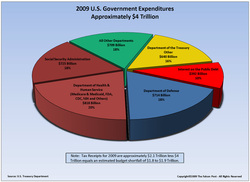
I frequently see the statement “Support Our Troops” on bumper stickers and I hear it from people as well. Like a lot of short, simple statements, its vagueness encourages its likability.
Our troops have bombed and invaded nations that presented no threat to us. They participate in drone bombings and have killed innocent people. In all fairness, those who say they support the troops do not likely support these actions.
Many who join the armed forces do so because they cannot get a job nor can they afford college. They are the ones who most need our support and we can give it to them.
What if more young people could choose to go to college?
Consider a new report from Bloomberg.com reported in The Week magazine that the “net worth of the average Canadian household was $363,202, while the average American household had a net worth of $319,970.” The net worth statistics used to be the other way around.
How have the Canadians surpassed us in this regard?
We could look to what our federal government spends. For Fiscal Year 2010, spending on the United States Defense Department took up at least twenty percent of the budget. The number goes higher when one considers spending on Veterans Affairs, Homeland Security, interest on debt incurred in previous wars and other issues.
What do nations like Canada spend on their military? About 1.4 percent!
On the other hand, the United States’ federal government outspends the Canadian government in percentage of spending on education of the total budget. It also outspends the Canadians on issues such as health care.
What assists the Canadians in terms of education is that it does not cost to go to “college” there. Colleges are two-year schools that United States refers to as “community college.” The costs of going to community college are high and getting higher. So are the costs of going to college, as many in the military are well aware.
We can foresee a problem ahead of time. The costs of going to college will rise to the point where most young adults will not be able to afford it. Jobs will continue to require degrees of most applicants. The military will remain one employer that does not require formal schooling.
We need to shift some of the military spending to colleges to lower the tuition bills. Here is how:
We must stop starting “elective” wars where we choose to fight a non-existent threat. This will lower the payment of interest on war spending.
We must reduce the stationing of soldiers in areas of conflict. This will lower spending on veterans affairs.
We must encourage diplomacy and find ways to avoid conflict that we clearly cannot afford.
The result will be a generation of citizens who do not feel pressured to join the military. And those who do join will do so more willingly and with the realization that the avoidance of conflict is a goal worth pursuing.
Overall, our presence overseas will no longer exceed what we can afford. And the presence at home will be a future of better educated people who might have better ideas as to how to stop unnecessary wars.



 RSS Feed
RSS Feed
